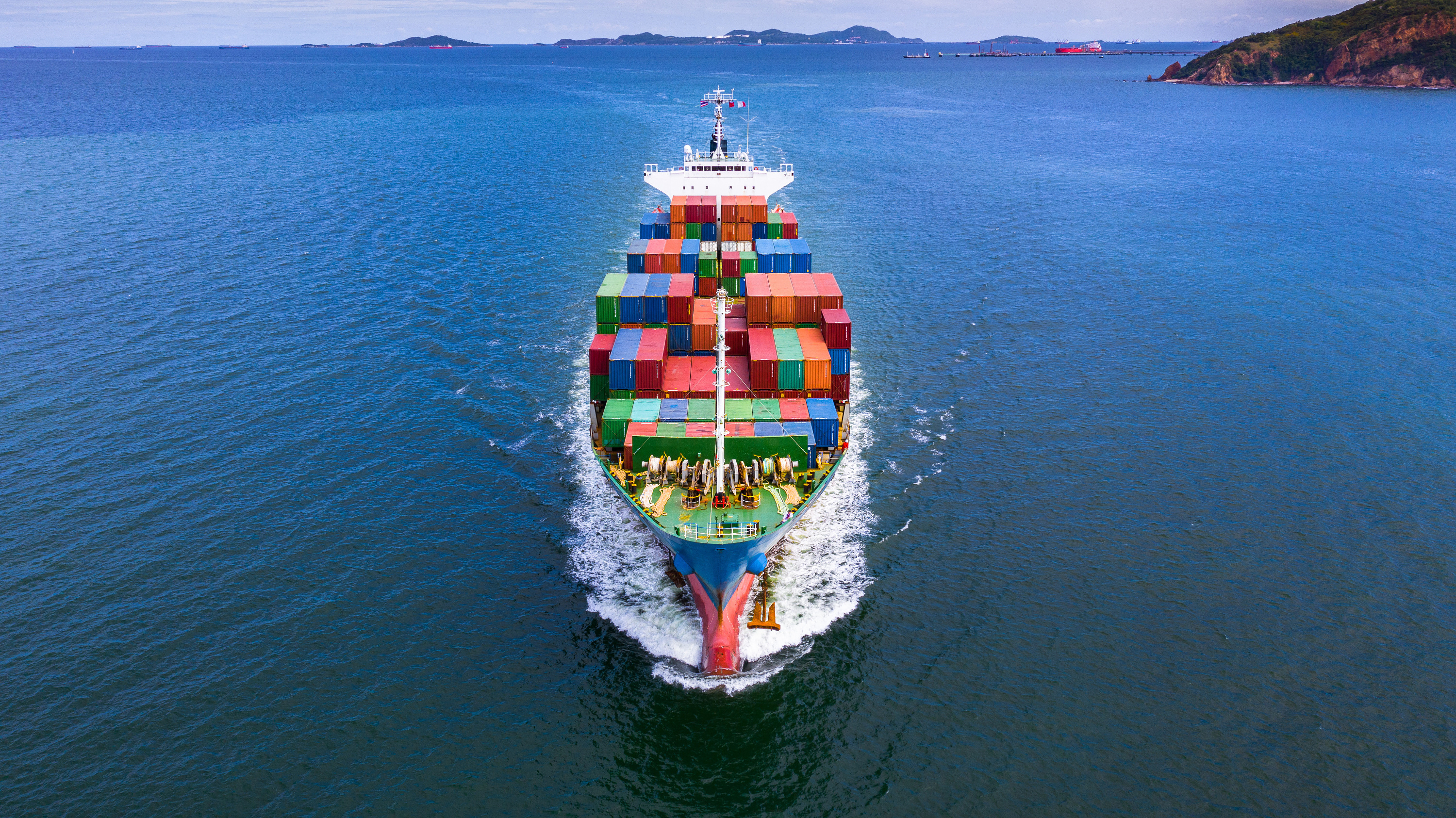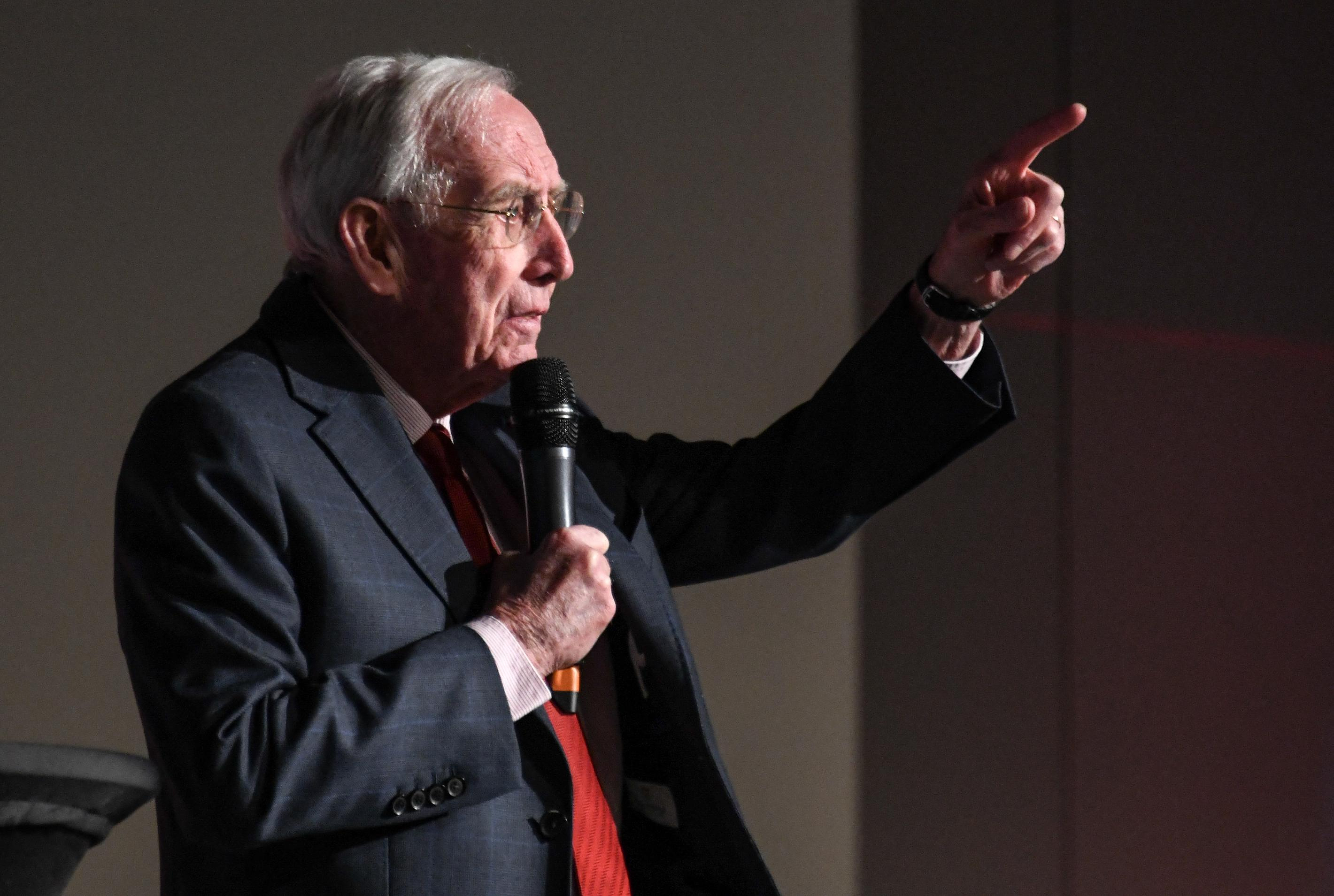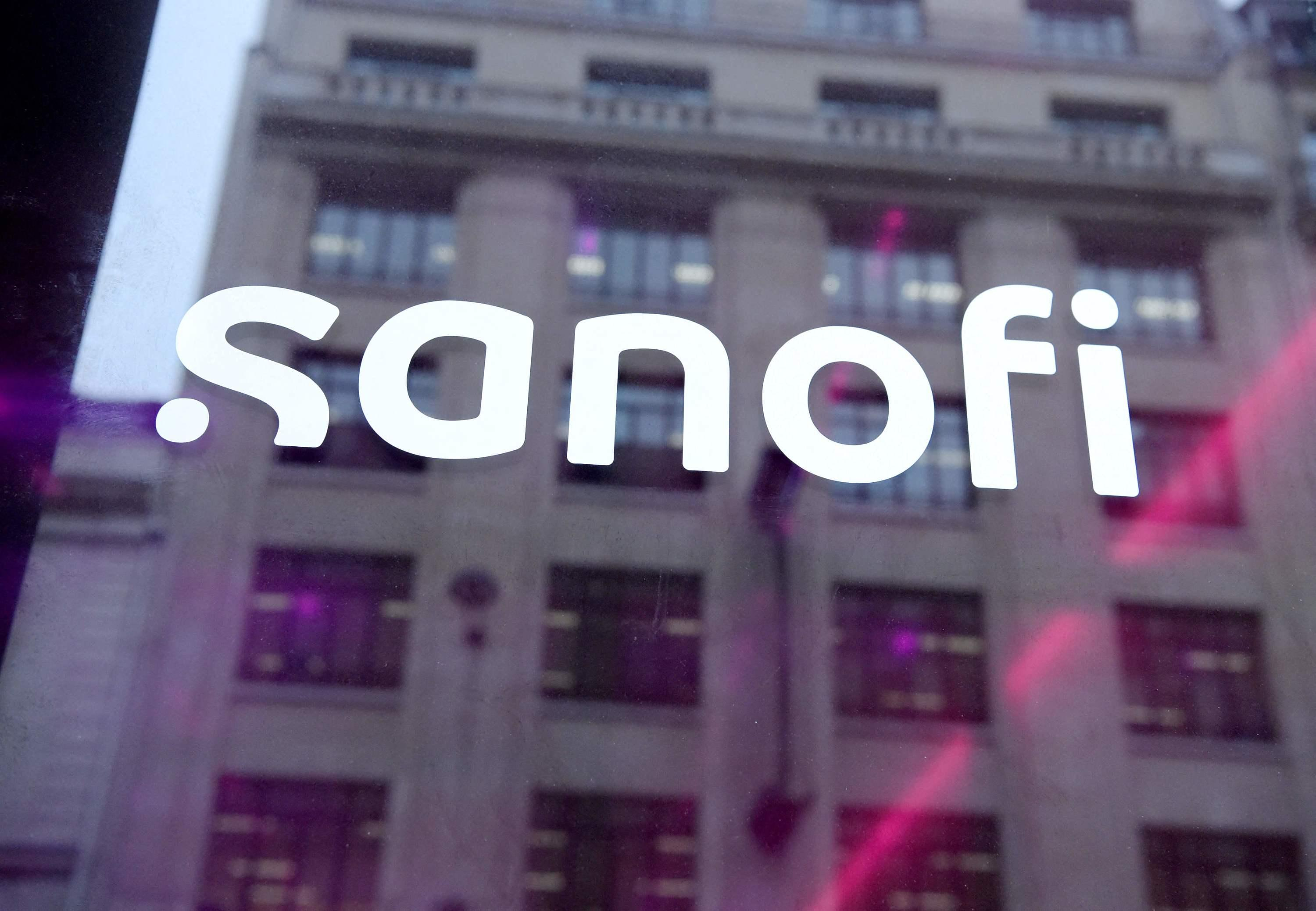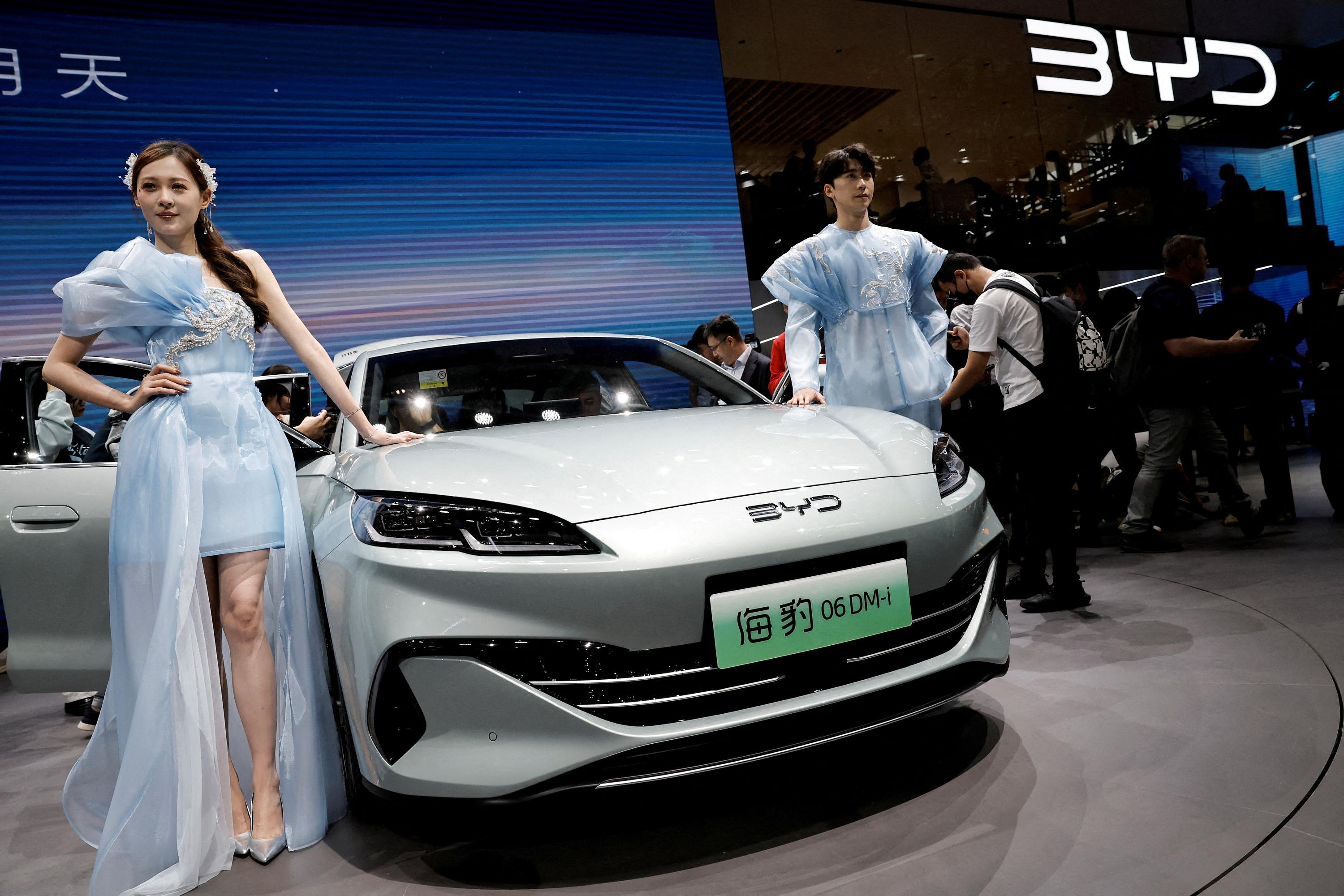There was the problem Norway will not have. We got six years in the chinese freezer after the independent nobel committee awarded the Nobel peace prize to the menneskerettighetforkjemperen Liu Xiaobo in 2010. Just over two years after the diplomatic relations with China were restored, Norway has met a new China-ghost: teknologigiganten Huawei.
Risk to call the new supermaktens wrath, to be formulated like a little dulgt from the government itself. You can still rely on the regimetro chinese newspaper Global Times puts words on feelings. This wrote the newspaper when Australia last year refused Huawei and another chinese telecommunications company, ZTE, the opportunity to build out their new 5G-online:
"anyone who intentionally damages chinese companies and excuse themselves with national security, will face its nemesis."
Lush use of language. Nemesis is well known that the vengeance goddess from Greek mythology.
We are now in the process of building out the new 5G network in this country. Critical infrastructure, as each of us and the community will use in more and more contexts when "all" test. Both the minister of justice, Tor Mikkel Wara and PST – most recently in connection with the annual threat assessment – have warned against the chinese teknologigiganten. And thus we started. The chinese embassy has responded and characterized, and Pst's warning as "ridiculous". Several other countries are also sceptical to drop to Huawei and ZTE in their new 5G network, and in the united STATES, Trump announced that they are considering a ban.
Langer out against the PST report: - Ridiculouswe Are in danger to be a tiny, stupid piece in a major trade war? Was it not the united STATES and the Trump that was aggressorene, with China as the new guarantor for international trade? Has not China in this case, a point in the exclusions of their companies is politically motivated? Or is it actually a technological and legal arguments that speaks for that it is reason to be concerned about these companies?
It is easy to be confused. Yesterday, Norway was visited by a young man sitting with some of the answers we need to clean up the mess. For the urgency of a clarification – we will have faster internet, for the heck!
Valentin Weber is phd at the University of Oxford, and an expert on cyber security, strategy and international relations. Yesterday he met the press and other interested parties (there was someone from chinese intelligence there, faith?) at an event at the Norwegian foreign policy institute in Oslo. To attack the problem, parts Weber it up in three.
cyber security: The british etterretningsorganisasjonen GCHQ has made an analysis of the components and software of Huawei, and come to realize that there are unpredictable elements in the system. Unpredictability is a potential threat to your security, therefore has the confidence to rely on something more, which leads us to the next point.
Legislation: the Chinese law around this is vaguely formulated. A new national etterretningslov from 2017 will be interpreted as a more offensively geared than the previous legislation has been, and reads: "An(y) organization or citizen shall support, assist in and cooperate in national intelligence work in accordance with the law and keep confidential the national intelligence work that it or he/she knows".
Therefore, a duty to cooperate, and a duty to shut up. For Norway and other countries without a security-political cooperation with China means that we have little reason to trust that the legislation is a buffer against, for example, espionage. It leads us to the last point.
Espionage: Huawei supplied the equipment and educated technicians to deal with your computer system in The African union's new prestisjebygg (similar to the european parliament) in Addid Ababa in Ethiopia. In 2017, it was revealed that the data must have been sent from Addis Ababa to Shanghai daily between midnight and two o'clock at night, over a period of five years. This is the most spectacular revelation, but there have also been several disturbing cases in the international media.
Webers conclusion is that it is difficult to guarantee for the security of the components and software, and towards the possibilities for espionage. The safety valve must thus be found in the legislation. Since the chinese law and the legal system does not ensure enough confidence, he believes Huawei and chinese technology companies operating abroad need to create sister companies outside China. These will have to take into account other sikkerhetslover, which provides more transparency.
But be careful, he says. And it is a sensible approach in today's political landscape. A total confrontation can have devastating effects. Both for trade and for the market. Among those who compete to build the world's 5G infrastructure is Huawei and ZTE together for 41 per cent of the market. To lock them out will make development more expensive. Norway must go in the block with the other countries when they make claims about the chinese adaptation, for example, along with Germany and the united Kingdom that is also on the same track.
If any should be in doubt about the seriousness, there came a new confirmation yesterday: Hackerangrepet against the company Vismas office in Oslo can be traced to a hackerkollektiv linked to chinese intelligence. It is only to say "ni hao" to a threat that must be taken very seriously.
Spionasjen against Norway's new initiative Comment
 Poland, big winner of European enlargement
Poland, big winner of European enlargement In Israel, step-by-step negotiations for a ceasefire in the Gaza Strip
In Israel, step-by-step negotiations for a ceasefire in the Gaza Strip BBVA ADRs fall almost 2% on Wall Street
BBVA ADRs fall almost 2% on Wall Street Ukraine has lost 10 million inhabitants since 2001... and could lose as many by 2050
Ukraine has lost 10 million inhabitants since 2001... and could lose as many by 2050 Sánchez cancels his agenda and considers resigning: "I need to stop and reflect"
Sánchez cancels his agenda and considers resigning: "I need to stop and reflect" The Federal Committee of the PSOE interrupts the event to take to the streets with the militants
The Federal Committee of the PSOE interrupts the event to take to the streets with the militants Repsol: "We want to lead generative AI to guarantee its benefits and avoid risks"
Repsol: "We want to lead generative AI to guarantee its benefits and avoid risks" Osteoarthritis: an innovation to improve its management
Osteoarthritis: an innovation to improve its management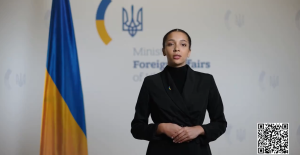 Ukraine gets a spokesperson generated by artificial intelligence
Ukraine gets a spokesperson generated by artificial intelligence The French will take advantage of the May bridges to explore France
The French will take advantage of the May bridges to explore France Organic flour contaminated by a recalled toxic plant
Organic flour contaminated by a recalled toxic plant 2024 Olympics: Parisian garbage collectors have filed a strike notice
2024 Olympics: Parisian garbage collectors have filed a strike notice Death of Paul Auster: Actes Sud says he is “lucky” to have been his publisher in France
Death of Paul Auster: Actes Sud says he is “lucky” to have been his publisher in France Lang Lang, the most French of Chinese pianists
Lang Lang, the most French of Chinese pianists Author of the “New York Trilogy”, American novelist Paul Auster has died at the age of 77
Author of the “New York Trilogy”, American novelist Paul Auster has died at the age of 77 To the End of the World, The Stolen Painting, Border Line... Films to watch this week
To the End of the World, The Stolen Painting, Border Line... Films to watch this week Omoda 7, another Chinese car that could be manufactured in Spain
Omoda 7, another Chinese car that could be manufactured in Spain BYD chooses CA Auto Bank as financial partner in Spain
BYD chooses CA Auto Bank as financial partner in Spain Tesla and Baidu sign key agreement to boost development of autonomous driving
Tesla and Baidu sign key agreement to boost development of autonomous driving Skoda Kodiaq 2024: a 'beast' plug-in hybrid SUV
Skoda Kodiaq 2024: a 'beast' plug-in hybrid SUV The home mortgage firm rises 3.8% in February and the average interest moderates to 3.33%
The home mortgage firm rises 3.8% in February and the average interest moderates to 3.33% This is how housing prices have changed in Spain in the last decade
This is how housing prices have changed in Spain in the last decade The home mortgage firm drops 10% in January and interest soars to 3.46%
The home mortgage firm drops 10% in January and interest soars to 3.46% The jewel of the Rocío de Nagüeles urbanization: a dream villa in Marbella
The jewel of the Rocío de Nagüeles urbanization: a dream villa in Marbella Europeans: a senior official on the National Rally list
Europeans: a senior official on the National Rally list Blockade of Sciences Po: the right denounces a “drift”, the government charges the rebels
Blockade of Sciences Po: the right denounces a “drift”, the government charges the rebels Even on a mission for NATO, the Charles-de-Gaulle remains under French control, Lecornu responds to Mélenchon
Even on a mission for NATO, the Charles-de-Gaulle remains under French control, Lecornu responds to Mélenchon “Deadly Europe”, “economic decline”, immigration… What to remember from Emmanuel Macron’s speech at the Sorbonne
“Deadly Europe”, “economic decline”, immigration… What to remember from Emmanuel Macron’s speech at the Sorbonne These French cities that will boycott the World Cup in Qatar
These French cities that will boycott the World Cup in Qatar Top 14: Fijian hooker Narisia leaves Racing 92 and signs for Oyonnax
Top 14: Fijian hooker Narisia leaves Racing 92 and signs for Oyonnax Europa League: Jean-Louis Gasset is “wary” of Atalanta, an “atypical team”
Europa League: Jean-Louis Gasset is “wary” of Atalanta, an “atypical team” Europa League: “I don’t believe it…”, Gasset jokes about Aubameyang’s age
Europa League: “I don’t believe it…”, Gasset jokes about Aubameyang’s age Foot: Rupture of the cruciate ligaments for Sergino Dest (PSV), absent until 2025
Foot: Rupture of the cruciate ligaments for Sergino Dest (PSV), absent until 2025




